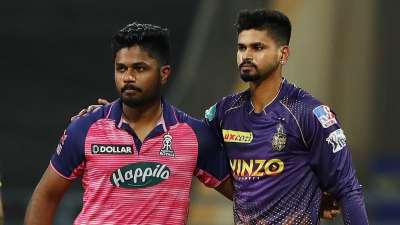The Indian Premier League has revolutionized cricketing standards in India and again brought forth the focus on the coaching fraternity to the extent of the winning or losing line of a team being decided by coaching. The franchise splurges money on creating a star-laden profile, and then it’s utterly out of question where the issue of effective coaching is concerned. A coach is what forms the skeleton of a team-the one responsible for chalking out strategies, to fine-tune the contribution of each performer, and facilitate a championship-winning attitude. The influence of coaches within the IPL can hence be analyzed through a few essential aspects, such as strategic planning, player development, team dynamics, and adaptability.
Coaches are directly involved in strategic planning within IPL teams. In such a fast-paced event, the schedule of the tournament often calls for multiple matches in a row within a few days. Thus, coaches are required to design better game plans against all sorts of opponents. This would involve analyzing the rival teams’ strengths and weaknesses, studying player performance data, and devising strategies to exploit the strengths of their team. A case in point for such preparation would be how Stephen Fleming and Ricky Ponting have been tactically profound in guiding their respective teams through different stages of the tournament towards victorious outcomes. Skilled coaches require being able to read the game and making real-time adjustments.
Player development is another role that coaches play in the IPL. The diverse nature of the tournament, as it accommodates both established international stars and youngsters, presents an unique scenario where skill sets will be honed. Coaches play an important role in guiding the young lot and making them accustomed to the pressure of high-stakes cricket. They hone particular skills such as batting techniques or bowling variations, which are fundamentally required to beat the fiery competition of the IPL. Coaches keep younger players on a trajectory that will help win by giving corrective feedback and ensuring an environment of constant improvement.
Coaches not only develop individual players but also contribute to team building:. So, teams with such wide variety as the league does can sometimes face integration issues. Coaches need to create a cohesive team environment by setting trust and communication among the players. Only a few leaders like Mahendra Singh Dhoni can express a good team culture once led to let what is inside come out. Coaches enable this process to be performed by conducting team-building events, establishing opportunities for open dialogue, and making expectations clearer. A harmonious team environment often translates into better on-field performances; hence, the importance of coaches in general to shape the chemistry of the team.
Flexibility is yet another distinguishing mark of a successful coach in IPL, given the quick flow of format and conditions that are underway in the tournament. Eventually, weather, pitch conditions, and form of the players can change, and a coach must prepare himself to alter their strategy. For instance, a team may change its aggressive batting strategy to a more cautious strategy depending on the match situation. Coaches who can rapidly reassess and execute changes further improve their team’s probabilities of winning and give confidence to the players since they look up to them for guidance in trying times.
The third aspect, the mental aspect, is increasingly recognized as something critical to be leveraged in succeeding at IPL. Coaches play important roles in helping prepare their players psychologically, make the right decision given the pressure, and stay focused during any high-stakes match. This psychological support can become very critical in a tournament where each match is critical. Coaches employ various techniques, including visualization and mindfulness training, to ensure that players perform their best when under pressure.
Conclusion In a nutshell, a coach plays a multi-faceted role that is simply indispensable for the success of IPL. From planning strategies to developing players, from proper team dynamics to adjustments, all depend on good coaches who enhance performance during tournaments. Today, with franchises competing tooth and nail for the top spot, effective coaching shall continue becoming important and shall be underlined with the crucial role leaders will play in the world of cricket. Coaches play a great role in developing the future of the game while ensuring the teams achieve their aspiration within the limits of the IPL by offering them their share of service.


